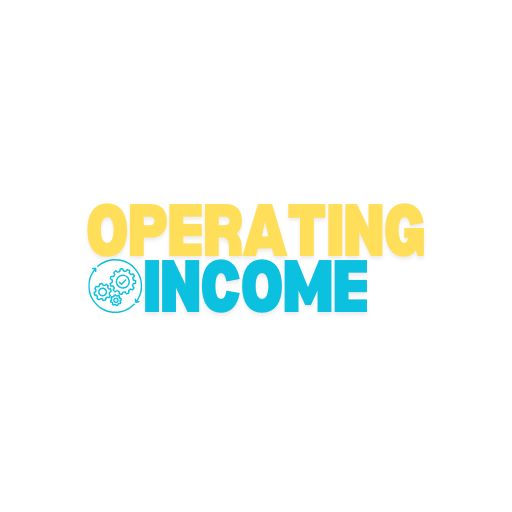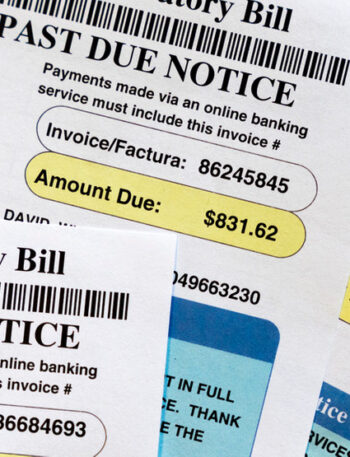At the 2023 Bogleheads Conference, Ann Garcia, CFP, made a passing comment on a panel about how your credit score is your adult GPA. An audible murmuring passed through the crowd, including me. I didn’t like that one bit, despite the fact that I think Ann is a brilliant financial planner and maybe the smartest person I’ve ever listened to about paying for college.
Don’t Worship at the Altar of the FICO Score

The reason the crowd bristled at her comment can be summed up in a classic Dave Ramseyism: “Don’t worship at the altar of the FICO score.” I agree with Dave on this point, but like most things, I’m not necessarily as extreme as he is. Dave’s point is simply that there are better measures of how somebody is doing financially, and a FICO or other credit score (“the I Love Debt score“) really doesn’t tell you that at all. The most prominent measures are the household income statement (income and expenses) and the household balance sheet (assets and liabilities). The most important numbers on that income statement are:
- The Gross Income,
- The Fixed Expenses (particularly the ratio of variable to fixed expenses), and
- The Savings Rate
The most important number on the balance sheet is:
- The Net Worth (everything you own minus everything you owe)
If there is an “adult GPA” when it comes to finances, I would argue that any of those four would be better than a credit score. I think the Bogleheads in that audience agreed.
What a Credit Score Gets Used For
Sometimes, Ramsey gets a little nuts, though, and this is one of those times. He acts like you don’t need a credit score at all. And while it is possible to buy a house without a credit score (it’s called manual underwriting, and a few mortgage lenders will do it), it’s far easier—and you’ll have more options and probably get a better deal—if you have a good credit score. However, a credit score is also used by companies that are not lenders. These include:
- Landlords
- Utility companies
- Insurance companies
- Potential employers
- Government (security clearance)
In addition to these uses, even those of us who are debt-free can be surprised about needing to use a credit score to establish a line of credit. For instance, we decided to change providers for the WCI company credit card a year or two ago, and the company used my credit score to decide whether to give it to us (and the credit limit we wanted, which was a big reason why we were swapping). Other potential uses for an established, previously debt-free person include buying a second home, co-signing on a loan for a child, and changing utility companies.
More information here:
Why My Credit Score Is Higher Than Jim Dahle’s
How to Maintain a Credit Score
We’ve been debt-free since 2017. If we haven’t carried a balance on any debt in six years, how is it that we have a credit score? We simply use credit cards to pay for things and then have them automatically paid off at the end of the month. I use very little cash. My debit card only gets used about five times a year (and usually only in an ATM in a foreign country), and I bet I don’t write 10 checks a year.

Everything goes on a credit card, whether personal or business. That’s enough. Our FICO score has been in the high 700s or low 800s for years doing nothing but that. No mortgage. No student loans. No car loans. No consumer debt. You don’t need to borrow money to have a good credit score; you just need to pay for things using credit. Even if you prefer to use a debit card (or checks or cash) to help you spend less or for a philosophical reason, fine. Just use a credit card for something like gasoline or a utility payment. Something where there is zero chance of you spending more because you’re using a credit card. That’ll be enough to keep that credit score high.
What Goes into a Credit Score
The factors that go into a FICO score are, in descending order:
- On-time payment history
- Credit-to-utilization ratio (I know, it sounds fancy)
- Length of credit history
- Credit mix
- Recent “hard” credit inquiries
The most important factor is to simply do what you said you’re going to do, i.e. make your payments on time. This is why landlords, utility companies, and employers check your score. It’s an indicator of your reliability. Remember that as far as the score goes, the FICO folks don’t actually care if you’re terrible with money. You can carry massive debts at 25% and still have an awesome credit score . . . as long as you make the minimum payment each month.
It also helps to not use all of your available credit. You can decrease that ratio by paying off debt, putting less on the card, or asking for a higher limit. The longer you do all this, the better your score. Once you get a score above 740-760, there is little additional benefit in getting that score any higher. A couple of years of buying your gas with a card that is automatically paid off every month should do it (and it will save you time at the pump).
Humor and Our Credit Score
Interestingly, a few days after writing this post, I happened to log in to a bank account we have that offers free credit score tracking. This is what it reported to me:

My favorite part is the list of reasons it gives for our “low” credit score. Two of them are because we don’t have a mortgage. The other two are because our ONLY credit is credit cards. It’s bizarre that we would have a higher credit score with a “better mix” of credit. It truly is an “I Love Debt” score, isn’t it? But even without anything but credit cards (for years), it’s still 815 because . . . you guessed it . . . we pay our bills.
A Great Way to Get Your Kids Started
Remember what a joke it was when you tried to initially establish credit in your life? Remember that $100 or $500 credit limit on that first “student” credit card>
I mean, some students have to go home after a night out and make a payment so they can use the card the next day. It’s ridiculous. You can help your kids skip that silly stage. Simply add them to your credit card with the longest history, especially a long history of perfectly on-time payments. Voila! Within just a few months, they’ll have a substantial credit history and a high score to boot. You don’t even have to tell them. You certainly don’t have to give them the card number, much less a physical card.
This is all just a game anyway, so you might as well play along.

More information here:
10 Benefits of Keeping Your Credit Score in Good Health
An Instant Credit Score for Your Child
Some Precautions with Credit
There are a couple of things you should consider about your credit. First, review your credit reports once a year (it’s free) to ensure there is nothing on them that is not accurate, especially if you have a common name. Second, give serious consideration to freezing your credit to prevent fraud. You’ll need to unfreeze it to apply for more credit, but you can do that pretty quickly with not too much hassle. Many parents freeze their children’s credit just as early as they can.
The Bottom Line
While I do not want you to worship at the altar of the FICO score and I certainly don’t want you thinking it’s “the GPA of your adult life,” it’s worth keeping and maintaining a decent credit score throughout your life. Thankfully, that won’t require much effort.
What do you think? What problems do you see when people put too much emphasis on credit scores? What’s your score and what have you done to raise it? Know somebody who could use this information? Make sure to share it with them.





